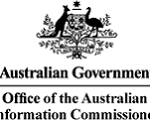Australia and the rules-based international order

Australia is ideally positioned to work with Asian societies and Western states to “update” the rules-based order and a new book – Australia and the Rules-Based International Order – will help to inform Australian policy makers and the interested public on this critical issue.
Last year the Rules Based Order was described in the New York Times as “among the Biden administration’s favorite terms.” As Ric Smith pointed out some time back, “RBO” was not used in Australian government White Papers before 2009.
In later government statements, the term appears time and again. It is described in the 2016 Defence White Paper as one of Australia’s three core strategic interests – and also highlighted in government proclamations from Japan, India, and Singapore.
Asking why this heavy focus on rules, Smith noted the potent comment in the 2017 Foreign Policy White Paper, that “strong rules” are “becoming more important to Australia as the distribution of power changes in the international system.”
With respect to this global power shift, American neoconservative Robert Kagan wrote some twenty years ago that the European preoccupation at that time with international rules and effective diplomacy was a result of European weakness.
By contrast, the United States had power – and was exercising it in “the anarchic Hobbesian world where international laws and rules are unreliable” and “true security” depends on the “possession and use of military might.” That was written in 2002.
Today, in a far more fluid – and less confident – global context, Americans as well as Australians are placing a priority on rules.
Allan Gyngell opens Australia and the Rules-Based International Order by citing the RAND Corporation’s definition of the RBO as “the body of rules, norms and institutions that govern relations among the key players in the international environment.”
The origins of the current order go back centuries, particularly in European history, but it was the Atlantic Charter of 1941 that outlined the “shape and purpose” of the post-war liberal order that was “underpinned by the hegemonic power of the United States.” The creation of the United Nations and the Bretton Woods economic institutions was also critical in this order-building process.
Gyngell and the other authors make it clear that Australia played far more than a minor role in the development of the RBO – and the narrative should stimulate discussion about what Australia could achieve today. In the 1940s Australia championed the interests of smaller nations – for instance, by gaining a greater authority for the General Assembly vis-à-vis the Security Council.
Other Australian contributions to the RBO include its work with developing the Antarctic Treaty, the UN Convention on the Law of the Sea (UNCLOS), the Treaty on the Non-Proliferation of Nuclear Weapons, the International Criminal Court, and the Bali Process on people smuggling and human trafficking.
Australia’s role in developing the Cairns Group of agricultural exporting countries is described by Peter Grey as “a brilliant piece of diplomacy.”
John Quinn provides an authoritative, detailed overview of Australia’s creative part in the evolution of “two inter-related tracks of the rules-based global order – disarmament and international humanitarian law.” He examines the “long pedigree” of this law-making – reaching back before the First World War.
The later Australian contributions, he argues, form a “proud record” – and looking ahead, he considers how Australia might assist in future rule-making in such areas as outer space security and cyber security.
Other highlights in this book include discussion of the important distinction between rules and law; the advantages and disadvantages of seeking consensus in the rule-making process; the problems raised by our current shift from multilateral to preferential trade agreements; and debate about Australia’s contribution to rule-making in cross-border people movement.
Some authors stress the need to defend the existing order. Others warn we must adapt to changing times. Martine Letts suggests the role of the nation-state as the fundamental building block of the RBO cannot be taken for granted. There are “other actors” – such as the world’s chemical industry – “that wield as much power as states.”
One new circumstance which deserves greater emphasis is the relative decline of the nations which did most to establish the post-war RBO. In this current order, notes Anthea Roberts, “core Western states” have had a “much better ability to take their values and their interests and universalise ….” There has been “strong power by the West and much less power by the non-Western states.” This, however, is changing.
Given Australia’s geographic location – and its economic and strategic priorities – the AIIA book might have given more analytical attention to the Asian context. An exception is Greg Raymond, who suggests the term “rules-based order” has become a “framing device” for an anti-China “identity politics.”
A few other essays acknowledge that a consensus order needs to evolve – something, in fact, which Australia’s 2017 Foreign Policy White Paper acknowledges as necessary to “accommodate the greater weight of emerging powers.”
In the concluding part of this book, the “Asia” priority is raised by several Australians who have done much to advance Australia diplomatically in Asia.
Gareth Evans stresses China’s right to be “a rule-maker rather than just a rule-taker.” John McCarthy sees the potential for Australia to “work in a sort of cogent and coherent way” with Japan and China – and reminds us, as well, that “China has tended to respect the rules-based order to some extent.”
Richard Woolcott calls it essential “to develop an updated rules-based order in which China, India, Russia, Vietnam, the Philippines and Indonesia – as well as the US and UK – must be involved.”
The challenge is how best to engage Asian interlocutors in collaborative reform. An initial step, as Ric Smith argued, is to stop talking about a “liberal rules-based order.” The use of “liberal,” so Raymond suggests, tends to imply “weaponizing [of] this rules-based global order against non-democracies.”
Another immediate measure must be to analyse perspectives from Asian countries. To this end, the Australian Committee of the Council for Security Cooperation in the Asia Pacific – in cooperation with Asialink at the University of Melbourne – has invited views from a range of Asian region commentators.
There is clearly widespread support for some form of rules system, but disagreement over how those rules should be defined, and who is to make the decisions. One message is that the work should not be left to the major powers.
The AIIA volume helps to establish Australia’s credentials as a rule-maker, reminding us in particular of the type of broker role Australia played – moving between major and smaller powers – in the early development of the UN.
As Anthea Roberts observes in the AIIA discussions, this would require “dialoguing rather than lecturing.” In preparing to play a role of such historic significance, Australian dialoguers and negotiators will find Australia and the Rules-Based International Order to be a foundational text.
This review of Australia and the Rules-Based International Order , edited by Melissa Conley Tyler, Allan Gyngell, and Bryce Wakefield, was published by the Australian Institute of International Affairs.
Anthony Milner is a senior advisor at Asialink and a professorial fellow at the University of Melbourne. He is also a visiting professor at the University of Malaya, and Co-Chair of the Australian Committee of the Council of Security Cooperation the Asia Pacific.











